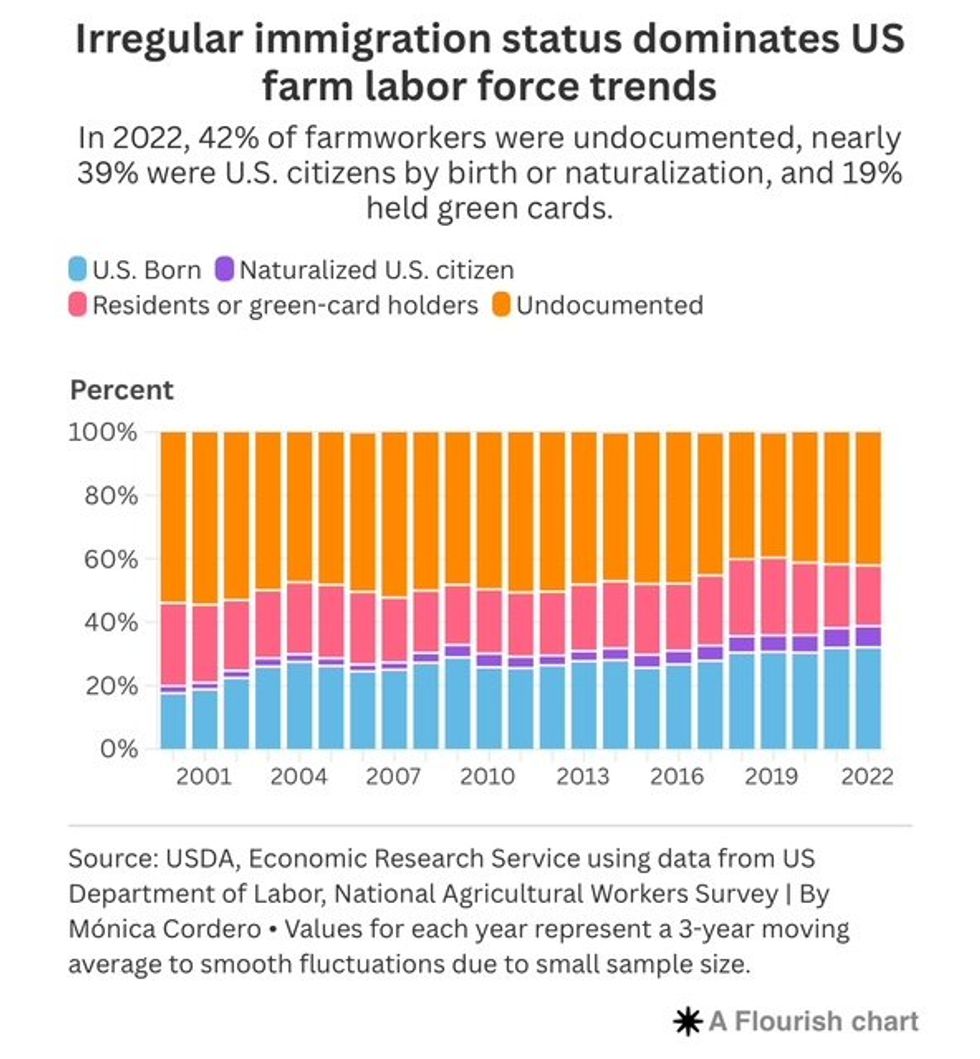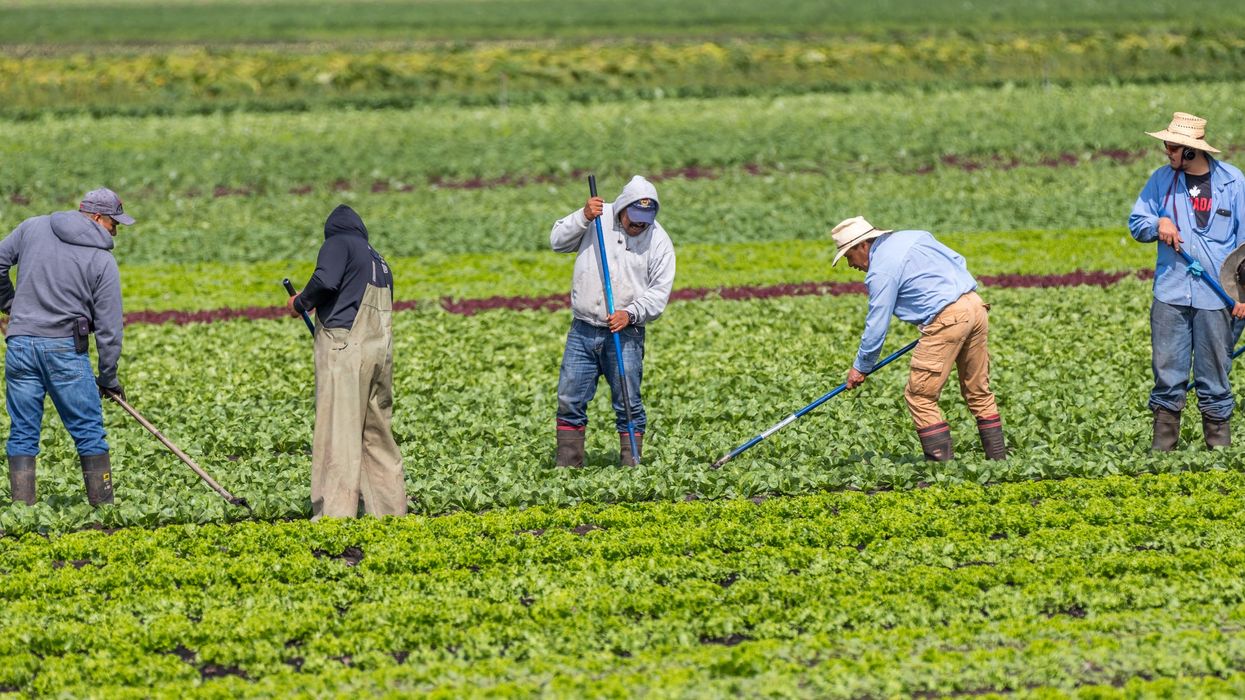
The nation’s agriculture sector, which relies heavily on undocumented workers, could face a significant challenge when President-elect Donald Trump takes office this month amid promises to enact stricter immigration policies.
The percentage of undocumented farmworkers — those without legal status — dropped from 54% in 2020 to 42% in 2022, according to the USDA and the U.S. Department of Labor.
Trump said his mass deportation of undocumented immigrants would start with the “criminals,” but that “you have no choice” but to eventually deport everyone in the country illegally, according to a December interview with NBC’s “Meet the Press. ”
Mary Jo Dudley, director of the Cornell Farmworker Program, emphasized the potential consequences of such policies, telling Investigate Midwest, “If we lost half of the farmworker population in a short period of time, the agriculture sector would likely collapse.”
“There are no available skilled workers to replace the current workforce should this policy be put into place,” she said.
As Trump policy changes loom, nearly half of farmworkers lack legal status was first published on Investigate Midwest, and was republised with permission.
Mónica Cordero is a Report for America corps member and part of the Mississippi River Basin Ag & Water Desk team. Her expertise includes data analysis with Python and SQL, and reporting under the Freedom of Information Act.




















Trump & Hegseth gave Mark Kelly a huge 2028 gift